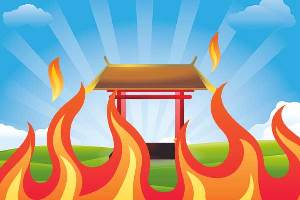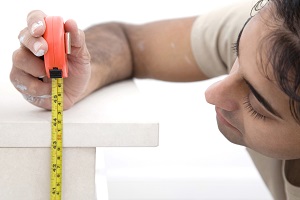Because water plays a primary role in feng shui, every item or fixture at home or at the office that has a connection to water is heavily scrutinized.
After all, the shui in feng shui literally translates to wind and water.
And the way the modern home is set up, the very mention of water would invoke us to think about faucets (taps), hoses, rinsers, shower heads, etc.
While most fixtures with a water outlet are found in the back yard, washroom or laundry room, the faucet is the one fixture that can appear all over the house.
I’ve seen taps installed in not just kitchens but also living rooms, dining rooms, balconies, decks, etc.
Even though these plumbing fixtures are installed with convenience in mind, it is important that a homeowner do them with feng shui in mind too.
Because water is symbolic with wealth, the wrong configuration can mean all your wealth luck metaphorically going down the drain, or running out of the house.
Most people are able to easily comprehend one of the basic kitchen rules of feng shui, which is that the sink should not face the stove as it causes a conflict of elements between water and fire.
But what many don’t realize is that even if the stove and sink are positioned diagonally across each other instead of opposite each other to this elemental clash, the clash can still occur if the faucet is pointing at the stove!
The concept behind this is that wherever the faucet or tap is pointing towards, it sends water energy in that direction.
There are 3 basic feng shui afflictions that homeowners need to keep in mind when adjusting or deciding the faucet’s pointing direction.
- Clash with stove
- Water leaving the house
- Elemental nature of direction
When all of the above are prevented or kept in check, then the house would not suffer from the negative effects that a wrong faucet setup can create.
This concerns wealth loss, disharmony, extreme bad luck for women, etc.
1) Clash with stove
As mentioned earlier, avoiding a clash between the sink and the stove would be in vain if the faucet points at the stove.
The rule of stoves and sinks in kitchens is that they should never be opposite each other. Facing each other in a stare down.
And when they are located beside each other, then they should be apart by at least the length of one forearm, about the measurement of your elbow tips to the middle finger.
For example, if you have followed this advice and strategically installed the stove and sink on adjacent walls, then a water-fire clash can still occur when the faucet is angled towards the stove.
There are various other configurations where the same circumstances can arise.
The good news is that faucets these days can be flexible and easily turn.
So if your tap is directed at the stove, just turn it away to another direction… and ensure the next rule is adhered to as well.
2) Water leaving the house
Water represents wealth, and it should not be leaving the house.
This can confuse some people as every direction the faucet points to will exit the house at some point.
So a little judgment is required to settle this. But it’s not something only a genius would be able to decipher.
If there’s a window, door to the balcony or any exit out of the house within the room where the faucet is, pointing the tap towards that direction would symbolize water leaving the house.
This can result in the loss of wealth and money luck.
If the kitchen is connected to the living room, then under most circumstances, pointing the faucet towards the living room is a safe bet.
This concept also applies to spouts, spigots, water valves, etc, located outside the house.
Ideally, they should not point away from the house.
3) Elemental nature of direction
Of the 4 cardinal and 4 ordinal direction, 5 are in harmony with the water element.
They are:
This means that your faucet can be pointed at any of the above 5 directions except south, southwest and northeast… unless a feng shui master has specifically requested that you do so for certain reasons.
This theory of clash and harmony is in accordance to the luo shu and formation of the later trigram arrangement.
Elemental clashes and conflicts in the home at render a house unable to properly tap on positive energies that can bring good luck to residents.
Are we thinking too much?
A lot of practitioners feel that the water tap direction is getting too meticulous in feng shui. It’s like counting the megabytes of a 10 gigabyte file.
But I feel that this knowledge is out there and should therefore be applied when possible.
After all, feng shui is about living in harmony with our living space. Neglecting such details would be like having a car but not wanting to think about potential parking problems.
It is part and parcel of the big picture as a whole.
Moreover, this parking ticket we are talking about concerns a potential loss of wealth.
I’m sure that is something that probably everybody don’t want.
Saying that, if you cannot adhere to all 3 rules, the priority is the first 2.















